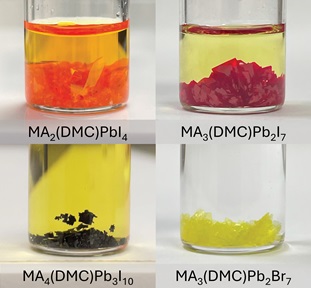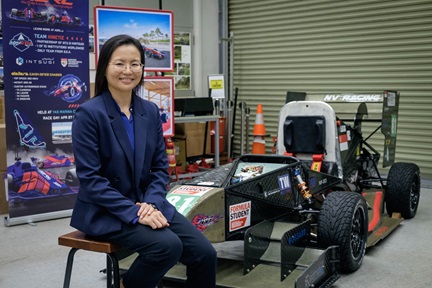Giving robots a soft touch
Researchers led by Asst Prof Leong Wei Lin of NTU’s School of Electrical and Electronic Engineering have developed ultrasensitive pressure sensors that may be used in wearable medical devices.

Made from highly pliant materials like those found in living organisms, soft robots play a big part in assistive surgery, medical rehabilitation and improving safety at the human-machine interface in manufacturing. To measure deformation or the robot’s position relative to its surroundings, soft robotics require highly sensitive and flexible pressure sensors.
Current flexible tactile sensors, which consist of thin films made of organic polymers, are limited by their high power consumption and sensitivity to external noise including from environmental sources. In addition, the required high voltages limit their ability to be integrated in wearables and other portable devices.
To overcome these limitations, researchers led by Asst Prof Leong Wei Lin of NTU’s School of Electrical and Electronic Engineering developed high performance organic electrochemical transistors with low operating voltage and ultra-low power consumption for novel pressure sensors.
Replacing the liquid electrolytes incorporated in conventional organic electrochemical transistors with solid polymer electrolytes, the team succeeded in building ultrasensitive pressure sensors that are able to detect objects as light as a flower or a grain of rice.
babies and newborns with extremely delicate skin, the researchers say.
Details of the research “Contact modulated ionic transfer doping in all-solid-state organic electrochemical transistor for ultra-high sensitive tactile perception at low operating voltage” can be found in Advanced Functional Materials (2020), DOI:10.1002/adfm.202006186.
The article appeared first in NTU's research & innovation magazine Pushing Frontiers (issue #19, August 2021).














/enri-thumbnails/careeropportunities1f0caf1c-a12d-479c-be7c-3c04e085c617.tmb-mega-menu.jpg?Culture=en&sfvrsn=d7261e3b_1)

/cradle-thumbnails/research-capabilities1516d0ba63aa44f0b4ee77a8c05263b2.tmb-mega-menu.jpg?Culture=en&sfvrsn=1bc94f8_1)


.tmb-listing.jpg?Culture=en&sfvrsn=29c7e020_1)
.tmb-listing.jpg?Culture=en&sfvrsn=55153609_1)


